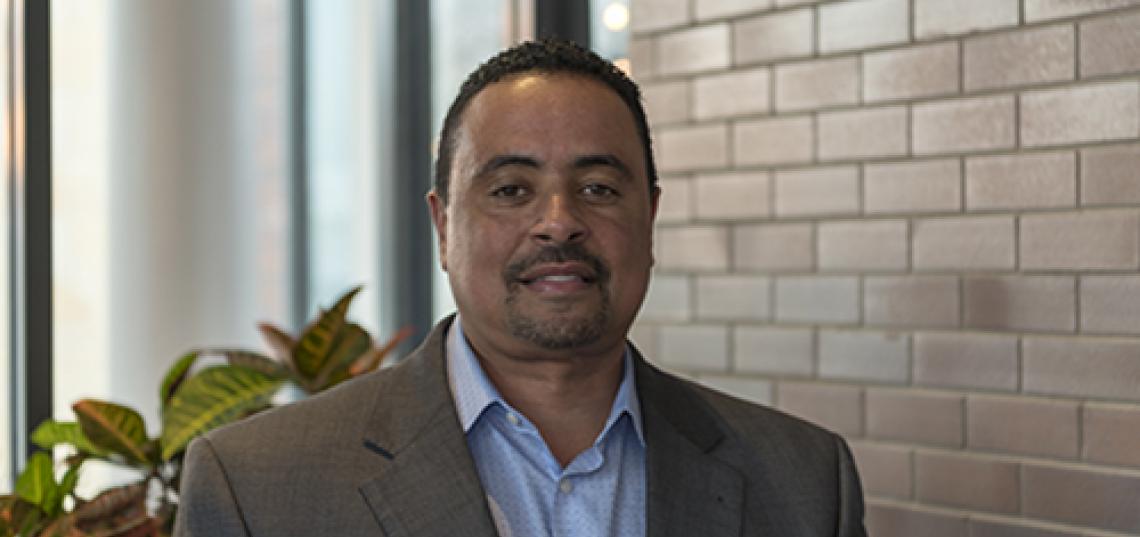
A new research proposal, “Combatting health misinformation with community-crafted messaging: Developing a scalable community-driven approach in Latin America and the United States,” co-led by Associate Professor of Library and Information Science Charles Senteio, has been awarded funding by the Social Science Research Council (SSRC) Mercury Project.
The goal of the study, which Senteio is co-leading with David Rand of the Massachusetts Institute of Technology in Cambridge, Massachusetts, is to evaluate the effectiveness of health-information messaging —developed to increase COVID-19 vaccination rates and provide accurate health information — that is created or vetted by members of the communities they are targeting.
“The power of our project,” Senteio said, is in using the ‘wisdom of crowds’ — a concept I studied in my information science doctoral training — to work with the targeted populations themselves to create the messages, and then to test them against the messages currently in use which have been created by technical experts who represent government and public health organizations.”
“Research has shown that misconceptions about COVID-19 and vaccination vary between nations and different demographic groups within them; that public health messages may be more persuasive when they are tailored and delivered by members of one’s group; that people are influenced by ads on social media; and that social media advertising is scalable, meaning it can reach millions of people,” Senteio said. “So our goal is to take these findings one step further to determine what the result will be if members of the intended audiences help create the social media ads and messaging. Will these ‘community-crafted’ ads be more effective than, for example, the Center for Disease Control (CDC) vaccine ads are in the U.S.?
“The power of our project,” Senteio said, is in using the ‘wisdom of crowds’ — a concept I studied in my information science doctoral training — to work with the targeted populations themselves to create the messages, and then to test them against the messages currently in use which have been created by technical experts who represent government and public health organizations.”
Senteio and Rand’s research team includes Antonio Alonso Arechar of the Center for Research and Teaching in Economics in Mexico; Luke Hewitt, at Rhetorical, LLC, in the U.S.; Gordon Pennycook of the University of Regina, Canada; Paulo Sérgio Baggio of Mackenzie Presbyterian University, Brazil; and Ben Tappin at MIT.
The team will partner with grassroots organizations in Brazil, Mexico, and the U.S. to recruit social media users from the communities they are targeting and invite them to revise currently used COVID-19 messages and advertisements to better appeal to their peers.
Then, using traditional online surveys and randomized “brand lift” campaigns on Facebook, they will assess how well these community-generated messages worked to improve vaccine attitudes and intentions.
The team will partner with grassroots organizations in Brazil, Mexico, and the U.S. to recruit social media users from the communities they are targeting and invite them to revise currently used COVID-19 messages and advertisements to better appeal to their peers.
“By the end of our project,” Senteio said, “we hope to be able to show government and public health organizations that by using our method of message development, they will be able to very quickly and inexpensively increase COVID vaccination rates, encourage other health behaviors, and help combat mis- and dis-information, and be confident that the ads and messages created or chosen by community members will be more effective than ads developed without community input.”
Senteio and Rand’s project is one of several studies awarded funding by the SSRC Mercury Project. According to the SSRC, “Through this project — enabled by The Rockefeller Foundation, Robert Wood Johnson Foundation, Craig Newmark Philanthropies, and the Alfred P. Sloan Foundation with a total of USD 10.25 million so far — the SSRC is supporting a first cohort of social and behavioral scientists from around the world to generate much-needed new research on locally tailored solutions in Bolivia, Brazil, Côte D’Ivoire, Ghana, Haiti, India, Kenya, Malawi, Mexico, Nigeria, Rwanda, Senegal, Sierra Leone, South Africa, Tanzania, United States, and Zimbabwe.”
Learn more about the Department of Library and Information Science at the Rutgers School of Communication and Information on the website.
